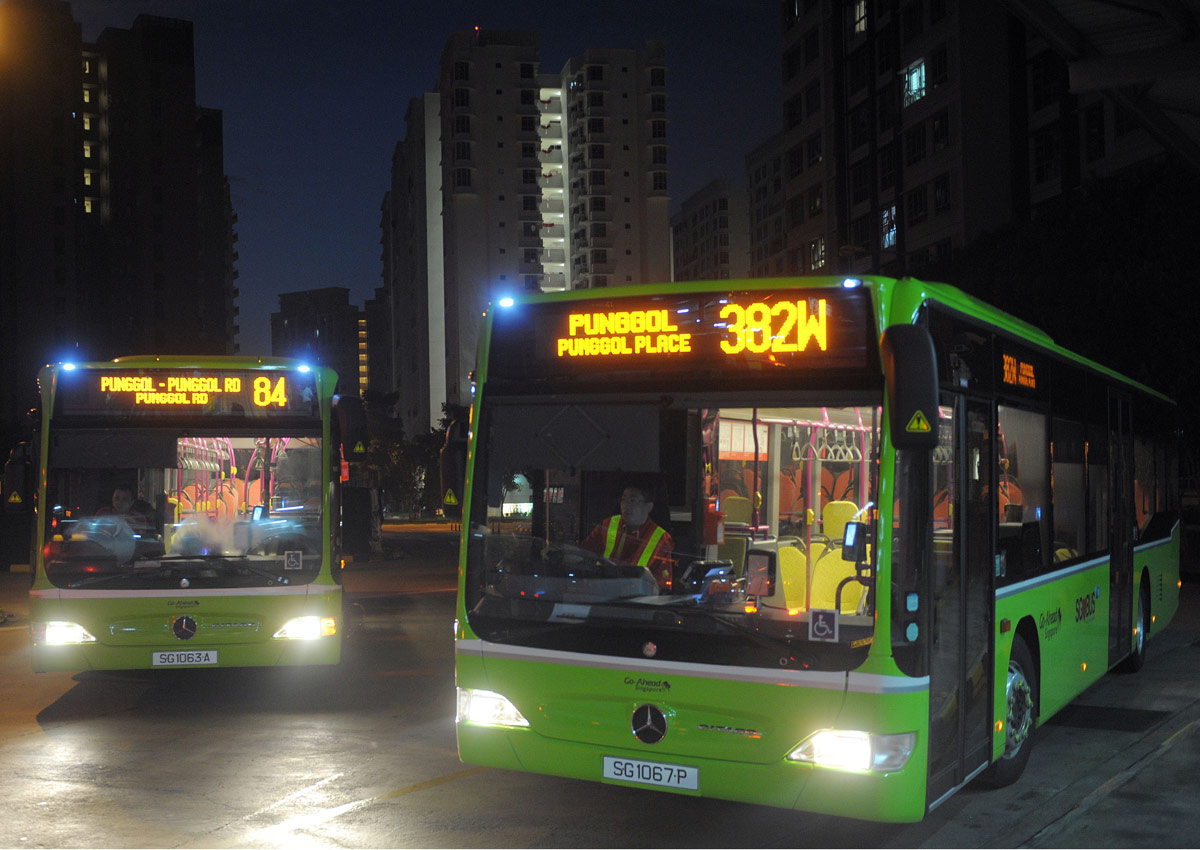New bus operator Go-Ahead is all but doing away with its policy of having drivers undertake more than one route per shift, after a spate of resignations arising from the unpopular practice.
In response to queries from The Straits Times, Go-Ahead spokesman Michelle Yin said that even though bus drivers were told they have to drive multiple routes – which is known as interlining – the firm was scaling back the practice.
“Go-Ahead Singapore has scaled back interlining and adjusted working schedules accordingly,” she said.
From an average of two trunk routes per shift, drivers will now do just one. Industry sources said drivers typically dislike interlining as it can be disorientating and disruptive.
SIM University senior lecturer Park Byung Joon said: “Singapore drivers don’t like interlining. They prefer a certain routine to their day.”
He said the practice, which is not uncommon, lets operators optimise resources and keep costs down.
Go-Ahead – the largest bus operator in London – said interlining “is the basis of our operating model in the UK”.
The British firm is one of two foreign players that have entered the local bus industry with government bus contracting. Last November, it clinched the right to run 25 routes for $497.7 million – the lowest bid.
Earlier, another newcomer, Anglo-Australian firm Tower Transit, had secured a package of 26 routes for $556 million – the third-lowest bid. Tower Transit said it does not implement interlining as extensively as it does elsewhere.
“We were aware that interlining was practised conservatively in Singapore,” said its chairman, Mr Neil Smith. “As a result, we have made only limited use of interlining, and have ensured that the bus captains involved were well trained and prepared for the change.”
Mr Smith noted that this practice is common in cities where buses operate at low frequencies – such as Perth and Sydney – and “a bit less common in cities with high frequencies such as in London”.
A little over two weeks after starting operations, Go-Ahead, which has more than 660 bus drivers, was hit by about 20 driver resignations.
As a result, it entered “short-term sub-contracting arrangements” with SBS Transit and SMRT Buses for the two to loan it 40 drivers in all.
These represent not only replacements for those who quit but also “additional bus captains required due to the scaling down of interlining”, Ms Yin said.
Industry watchers said that with the unforeseen increase in manpower, Go-Ahead’s profit margin from the contract might be shaved.
Resignations are not new to the Singapore bus industry. It has been reported that the overall driver attrition rate is as high as 15 per cent, or over 1,000 resignations a year.
The Land Transport Authority (LTA) said interlining is not new to the local bus industry, but that it has to be “calibrated appropriately”.
“Go-Ahead, like any other bus operator, is responsible for managing its operations to meet service requirements specified by LTA.”
christan@sph.com.sg
Read More:
Go-Ahead Singapore to launch bus services on Sept
Go-Ahead takes over routes, Pasir Ris interchange
Go-Ahead Singapore raises starting basic salary of bus captains to $1,950

This article was first published on September 22, 2016.
Get a copy of The Straits Times or go to straitstimes.com for more stories.






